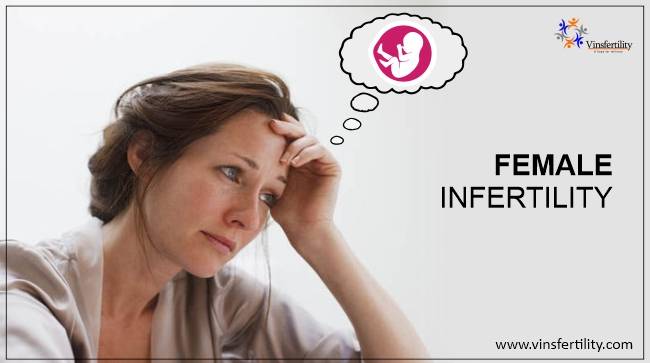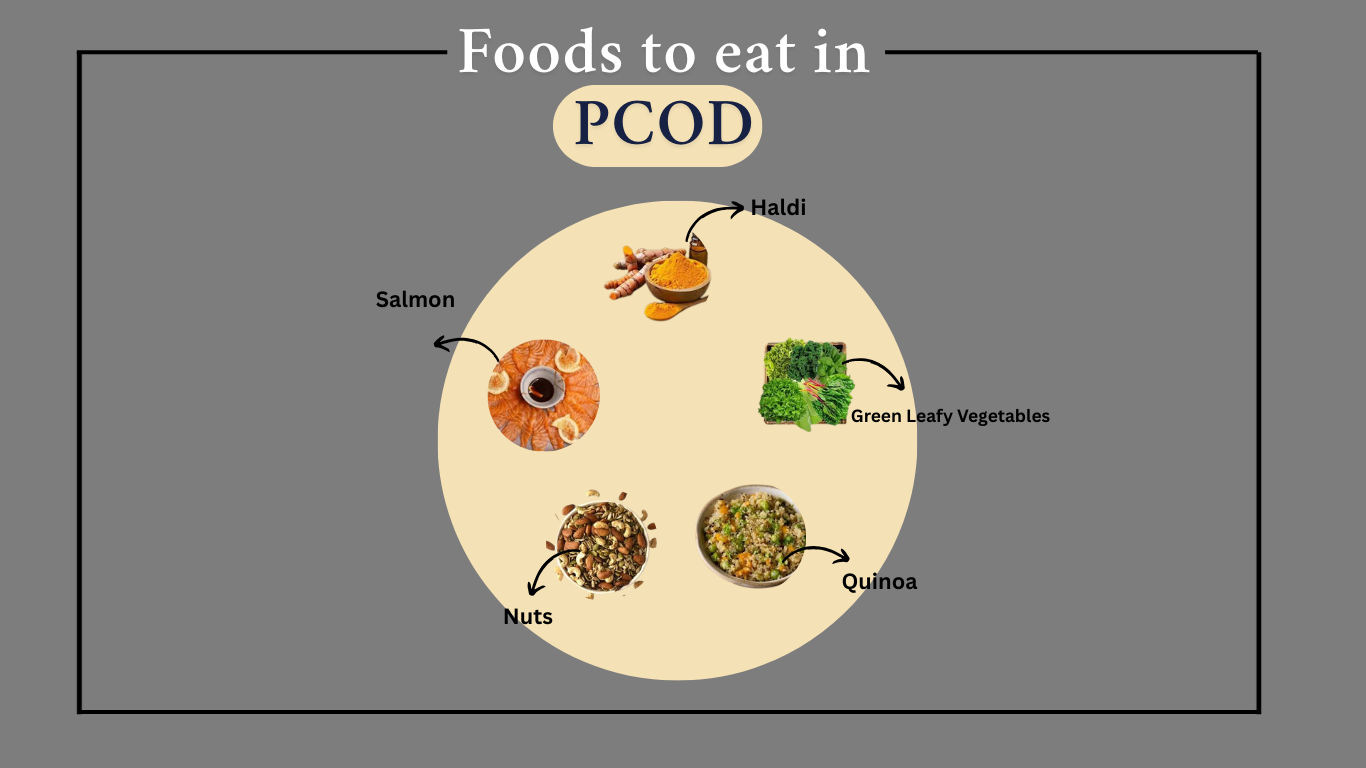
Female Infertility: Causes, Symptoms and Treatments
What is Infertility?
Infertility means not being able to conceive after having unprotected intercourse for a year. It is also termed Infertility when a woman gets pregnant but keeps having miscarriages or stillbirths.
There are two types of Infertility-Primary Infertility- It is called Primary Infertility when a couple has never conceived or even if they have, they end up with miscarriage or stillbirth.
Secondary Infertility- It is called Secondary Infertility when a couple has a child but is unable to conceive again.
In most cases, couples suffer from Primary Infertility.
However, contrary to the common belief that women are the only ones who can be infertile, males can be infertile as well. Both have equal chances of being infertile.
What is Female Infertility?
Female Infertility is a condition where the reason for infertility originates from the female, which makes it difficult for them to conceive a child. Its roots can be tough to identify. Normally, during sex, the egg fertilizes with the sperm when it passes through the vagina and reaches the uterus, where the egg is present. But due to female infertility, that egg is unable to fertilize with the sperm and even if it does, the embryo formed is unable to develop properly. There are several treatments, based on what is the reason behind your infertility.What are the causes of Female Infertility?
There are several infertility reasons in females. Nevertheless, it can be hard to identify the literal cause. Here are some causes we are mentioning which can be the reason for female infertility:-
- Problems with the uterus:- Inside the cavity of the uterus, fibroids, and polyps can evolve independently at any time. On the other hand, the septum is available from the time you are born.
- Problems with the Fallopian tube:- The most usual cause of fallopian tube infertility is a pelvic inflammatory disease, commonly generated by gonorrhea and chlamydia.
- Problems with ovulation:- There are several reasons why a female may not ovulate perpetually. Hormonal disparity, a former eating disorder, substance abuse, thyroid conditions, serious tension, pituitary tumors are all instances of things that can influence ovulation.
- Problems with egg number and quality:- Females are born with all the ovums they will ever have and this collection can get used up way early prior to menopause. Not only this, but some eggs will also have a false amount of chromosomes and cannot fertilize into a healthy fetus.
- Other factors:- There are other factors that severely affect female fertility - age, obesity, abnormal menstrual cycle, being underweight, smoking, ectopic pregnancy, etc.
- Ectopic Pregnancy- In this pregnancy, a fertilized egg is inserted outside of the uterus. This situation can result in bleeding in the mother. This pregnancy is deadly for the mother and demands emergency treatment.
-
- Abnormal menstrual cycle- Normally, a woman has a menstrual cycle of four to seven days. But women with abnormal menstrual cycles have their cycles in either more than thirty-five days or less than 21 days gap.
- Age- The quantity and quality of the female’s eggs starts to decrease with age. When women enter in their thirties or mid-thirties, the number of follicles loses their pace, ensuing in lesser and under par quality eggs. This create conception more hard and heighten the danger of miscarriage.
- Smoking- Apart from harming your fallopian tubes and cervix, smoking expands the threat of ectopic pregnancy and misscarriage. It might also age your ovaries faster and consume your eggs prematurely. Prevent smoking prior to fertility treatments.
Female Infertility Symptoms
The Prime female infertility symptom is the lack of ability of a woman to conceive a child. If you notice that your periods are irregular or absent, you are having a menstrual cycle that happens in the gap of either less than twenty-one days or more than thirty-five days, it can be a sign that you are not ovulating. But it's not necessary with every one as some of them might not show any symptoms at all.
Other times, infertility in womens can be associated with issues related to hormones. This kind of scenario includes symptoms like:-- Changes in sexual urges and drive.
- Skin can become more sensitive and experience too much acne or pimples.
- Gain in body weight.
- Black hair grows on the chin, chest & lips.
Foods That Cause Female Infertility
Even though lots of women are perfectly healthy, they still fail to expectant. Recently, it is found that an unhealthy lifestyle and bad diet can also be one of the major causes for ovulatory disorder infertility. There are certain foods that can affect fertility in women:-
- Those edibles have high sugar levels. They have a possibility to escalate the chances of infertility in the womens. Example - White rice, pumpkin, french fries, cornflakes, donuts, etc.
- Cheese that is not produced by pasteurized milk can affect fertility in females. Listeria is a kind of bacteria that is present in those cheeses, they have the ability to travel the placenta and harm the uterus.
- Edible products which have caffeine in them can also result in female infertility. And if you are having more than three hundred grams of coffee everyday, it will heighten the risk of infertility. If you are trying to conceive a child, then you are required to quit caffeine.
- Foods like packaged food, fast food, baked and frozen foods have ample amounts of trans fat in them that can be harmful to the fertility of females.
Treatment Options for Female Infertility
Female Infertility treatment depends on various factors - age, cause, the time span for your infertility, etc. And these treatments demand crucial time, psychological, financial, and physical arrangements.
- In Vitro fertilization is a broad and extremely advanced method in order to help the sperm and egg. IVF is an approach of artificial insemination in which the sperm and eggs are merged outside the body and then put down in the uterus after the development of the embryo. The method was first initiated in 1981 and has been victoriously used to deliver birth to over two lakh babies.
- Surrogacy is an approach in which an embryo formed from the egg and sperm of the intended parents is put inside the uterus of another woman known as the surrogate. A legal agreement is made between intended parents, surrogate mother and the clinic. The surrogate mother agrees to carry the baby for nine months and then hand it over to the parents.
- Assisted Reproductive Technology (ART) is among the prominent and popular treatment options obtainable for treatment. This automation is carried out through the amalgamation of hormonal therapy and fertility drugs.
- Medical Therapy is a procedure in which particular drugs are prescribed to women struggling from various problems with ovulation.
- Egg donation requires the moving of Oocytes from the ovary of a female who has confiscated fertility medications for ovarian stimulation.
- Intrauterine insemination is another method that utilizes a small number of concentrated sperm cells. This process is a pain-free method and requires a few minutes to attain.
Vinsfertility
We at Vinsfertility believe in helping you realise your dream of parenthood. We understand that infertility diagnosis can come as a shock to you but are here to offer help and assurance of a bright future ahead. By understanding each person’s individual needs, we provide you with the best-suited solution. For more details contact us at-






